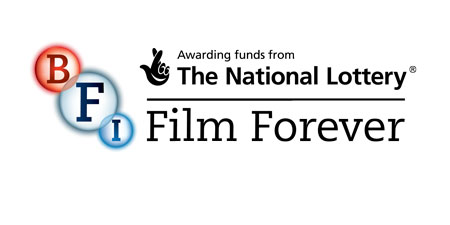LUMI Reviews: Between Two Worlds
27 May 2022
LUMI young programmer Fionntán Macdonald reviews a new release. This week, the French film Between Two Worlds starring Juliette Binoche.

From writer and director Emmanuel Carrère and the incomparable Juliette Binochet comes a hypnotic and devastating collaboration that interrogates the plight of the working class, the morality of the journalist and the role of its own audience: Between Two Worlds (2021).
Set in a small port town in Northern France, this film focuses on Marianne, a journalist posing as an impoverished divorcee in order to cover the precarious lives of women seeking work in an unemployment crisis. Between Two Worlds is largely preoccupied with the every day, not with the mundane but, rather, with the familiar. Far from being prosaic, this slice of life drama finds beauty and value in the fleeting interpersonal moments shared by its captivating cast, making it all the more devastating when we are confronted with the fact that these moments may have meant little at all.
Though it raises many questions, this film is less concerned with providing answers than it is with engaging the viewer in Marianne’s central dilemma as a woman hoping to document authentic experiences but who herself is forced into duplicity by the nature of her work. In this capacity Binoche excels as she perfectly balances genuine feelings of connection with the guilt and doubt her character experiences. It will be no surprise to anyone that this mainstay of European cinema delivers (yet again) a performance consummate with her experience, but there remains an elegant allure to her subtle yet somehow calamitously emotive performances some decades into her career.
What may leave you pleasantly surprised, however, are the two supporting performances that not only bolster her own but re-contextualise it as either misguided altruism or a maudlin masquerade depending on your interpretation. This interplay among the actresses is made all the more stunning by the revelation that both the young and naive Marilou (Léa Carne) and the jaded realist Chrystèle (Hélène Lambert) are played by debutantes to the screen. Chrystèle in particular leaps from the projectionist’s booth with ejaculations of anger and passion but an accompanying charm and warmth that is equally tangible. You’d be forgiven for at times forgetting that these are, in fact, performances and not authentic people who have wandered into the view of the camera by a happy accident.
This evocative trio of central players are as emotive as they are enthralling and as naturalistic as they are skilful. There’s a sense of isolation, a quiet loneliness, amongst the characters but despite this they are not resigned to misery and over the course of the film we see bonds form between them as they share in struggle, satisfaction and the modest joys of working class life. Yet there remains a sense of impermanence and the cloud of Marianne’s true identity casts a darkening shade over the proceedings.
“I want to make the invisible visible,” says Marianne in regard to her book, but the question is raised, is this an attempt to capture a real experience from the quilt of a sheltered life or just virtue signalling with poverty tourism? There’s a duality to the main character, a genuine desire to help those around her in some way but a constant knowledge that she is positioned to profit greatly from them. Is she an artist finding a portrait to paint? Or a voyeur, a beguiling beholder who views this whole matter as transactional?
Her ambiguous role adds a bitter note to the sweet taste of some of these personal moments, but also succeeds in adding additional depth to Carrère’s challenging film. Marianne is not only something of a surrogate for the real author (Florence Aubenas) whose non-fiction bestseller Between Two Worlds is loosely based on, but also a proxy for the audience. Much like Marianne we will enter the lives of these people, learn about them, empathise with them and then depart with little of our own existences having tangibly changed. They will, however, make you think not only about their role in society but your own role as an onlooker and if you are more like the Marianne we hope her to be, or the one we fear may really exist.
Poignant, provocative, uplifting and yet still crushing, Between Two Worlds is an exceptional drama which may indeed entertain you, but which will definitely confront you with questions worth asking. Expect no easy answers but expect to feel something by the closing credits.
- written by Fionntán Macdonald




